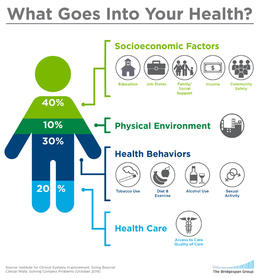
Food Insecurity And Health Outcomes. This paper explores how food insecurity and hunger relate to health and nutrition outcomes in food-rich countries such as the United States. 25 26 27 They also face a higher risk of developmental problems. When people do not know when or where they will eat their next meal finding food may become their central focus. We use propensity scoring techniques to approximate the causal effects of food insecurity on childrens health and health care use outcomes.

We show that the literature has consistently found food insecurity to be negatively associated with health. While the relationship between food insecurity and mental health is not new the study suggests that COVID-19 presents a new set of conditions that potentially exacerbate that dynamic. A relationship exists between food insecurity food access and cardiovascular health 1417. It focuses on two subgroups of the population for whom data are available. According to FeedingAmerica food insecurity impacts around 40 million Americans and 12 million American children. A majority of low-income adults shared worries about the effects of COVID-19 on the economy in general no matter their food security status.
1 in 8 Americans Is Affected by Food Insecurity.
We use propensity scoring techniques to approximate the causal effects of food insecurity on childrens health and health care use outcomes. Women of childbearing age and school-age children. According to FeedingAmerica food insecurity impacts around 40 million Americans and 12 million American children. Food insecurity is highly stressful. A relationship exists between food insecurity food access and cardiovascular health 1417. The cause of this social determinant of health aka food insecurity is sociological but the outcome is effecting people biologically and psychologically.